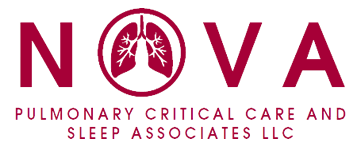Sleep Disorders Program Springfield, VA and Beyond
Sleep disorders are relatively common, affecting a significant portion of the population worldwide. While the prevalence rates may vary depending on the specific type of sleep disorder and population studied, research indicates that a substantial number of people experience sleep-related issues at some point in their lives.
NOVA Pulmonary Critical Care and Sleep Associates sleep specialists near Springfield, VA provide sleep testing, diagnosis and treatment. If you suspect a sleep disorder please call 571-367-0000 right away to book a consultation.
When to consider a Sleep Disorders Program?
It is time to consider a sleep disorder program if you consistently have trouble falling asleep, staying asleep, or waking up feeling unrested despite adequate time in bed, you may benefit from a sleep disorder program. Common sleep disorders include insomnia, sleep apnea, restless legs syndrome, and narcolepsy.
Excessive daytime sleepiness or fatigue that interferes with daily functioning can be indicative of an underlying sleep disorder. If you find yourself struggling to stay awake during the day, experiencing sudden bouts of sleepiness, or feeling excessively tired despite getting enough hours of sleep, a sleep disorder program may be helpful.
Loud and persistent snoring, along with pauses in breathing or choking sensations during sleep, may indicate sleep apnea. Sleep disorder programs often include evaluation and treatment options for sleep-related breathing disorders like obstructive sleep apnea.
People who work irregular hours, such as shift workers, or those who frequently travel across time zones may experience disruptions in their sleep-wake cycle. Sleep disorder programs may offer strategies and interventions to help regulate sleep patterns and improve sleep quality in these individuals.
Recurrent nightmares, night terrors, or other disruptive behaviors during sleep can significantly impact overall sleep quality and may be indicative of underlying sleep disorders or psychological conditions. A sleep disorder program may offer diagnostic evaluations and therapeutic interventions to address these issues.
Chronic pain conditions, medical illnesses, or mental health disorders such as depression and anxiety can significantly impact sleep quality and duration. Sleep disorder programs may incorporate a multidisciplinary approach to address both the underlying condition and its associated sleep disturbances.
Even individuals without diagnosed sleep disorders can benefit from sleep disorder programs to optimize their sleep health and improve overall well-being. These programs may provide education on sleep hygiene practices, relaxation techniques, and lifestyle modifications to promote better sleep habits.
Sleep Disorders Symptoms
Sleep disorders can manifest in various ways and can significantly impact your overall well-being. Here are some signs that you may have a sleep disorder:
- Difficulty falling asleep: You may find it challenging to fall asleep despite feeling tired. This could involve lying awake for extended periods before falling asleep.
- Frequent waking during the night: If you wake up multiple times during the night and struggle to fall back asleep, it could be a sign of a sleep disorder.
- Excessive daytime sleepiness: Feeling excessively tired during the day, regardless of how much sleep you’ve had the night before, can indicate a sleep disorder.
- Loud snoring: Loud and frequent snoring can be a symptom of sleep apnea, a common sleep disorder characterized by interruptions in breathing during sleep.
- Gasping or choking during sleep: Waking up abruptly with a sensation of gasping or choking can be a sign of sleep apnea.
- Restless legs syndrome (RLS): RLS is characterized by an uncontrollable urge to move the legs, often accompanied by uncomfortable sensations like tingling or crawling.
- Difficulty concentrating: Sleep disorders can impair cognitive function, making it difficult to concentrate, focus, or remember things during the day.
- Mood changes: Irritability, mood swings, and feelings of depression or anxiety can be linked to poor sleep quality.
- Frequent headaches: Headaches, especially upon waking in the morning, can be a sign of sleep disorders like sleep apnea or insomnia.
- Impaired performance: Sleep disorders can impact your performance at work or school, leading to decreased productivity and increased errors.
- Difficulty controlling emotions: Sleep deprivation can make it harder to regulate emotions, leading to heightened emotional responses or outbursts.
- Increased risk of accidents: Sleep disorders can increase the risk of accidents, particularly when driving or operating machinery, due to impaired alertness and reaction times.
If you experience any of these signs regularly, it’s essential to consult with our Tyson’s Corner Sleep specialists. They can help diagnose any underlying sleep disorders and recommend appropriate treatment options.
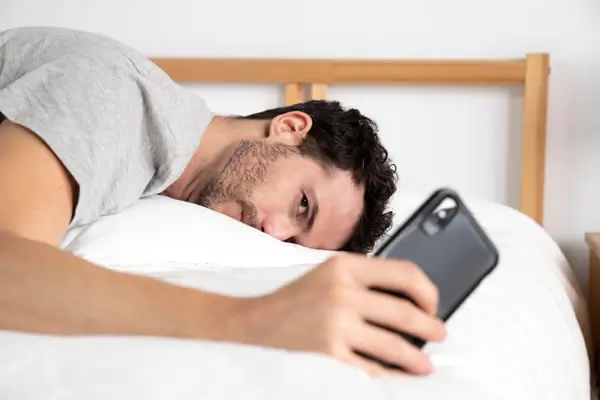

Consult with a Springfield Sleep Specialist
What can you do if you suspect you have Sleep Disorder?
If you suspect that you have a sleep disorder, it’s essential to take steps to address it for the sake of your overall health and well-being. Here are some actions you can take:
Consult with a sleep specialist: Start by scheduling an appointment with a sleep specialist. They can evaluate your symptoms, medical history, and sleep patterns to determine if you have a sleep disorder and recommend appropriate treatment options.
Keep a sleep diary: Keep track of your sleep habits, including bedtime, wake time, quality of sleep, and any factors that may affect your sleep, such as caffeine consumption or stress. This information can help your healthcare provider identify patterns and potential triggers for your sleep disorder.
Undergo a sleep study: In some cases, your healthcare provider may recommend a sleep study, also known as polysomnography, to monitor your sleep patterns and identify any underlying sleep disorders, such as sleep apnea or restless legs syndrome.
Make lifestyle changes: Adopting healthy sleep habits, also known as sleep hygiene, can improve your sleep quality. This includes maintaining a regular sleep schedule, creating a comfortable sleep environment, avoiding caffeine and electronic devices before bedtime, and practicing relaxation techniques like deep breathing or meditation.
Consider therapy: Cognitive-behavioral therapy for insomnia (CBT-I) is a structured program that helps address the underlying thoughts and behaviors contributing to insomnia. It can be highly effective for improving sleep quality and duration.
Explore medication options: In some cases, medications may be prescribed to help manage sleep disorders, such as insomnia or restless legs syndrome. However, medication should be used under the guidance of a healthcare professional and as part of a comprehensive treatment plan.
Treat underlying health conditions: Addressing underlying medical conditions, such as depression, anxiety, or sleep apnea, can often improve sleep quality. This may involve medication, therapy, lifestyle changes, or other interventions.
Practice relaxation techniques: Engage in relaxation techniques before bedtime to help calm your mind and body, such as progressive muscle relaxation, guided imagery, or gentle yoga stretches.
Limit alcohol and tobacco: Both alcohol and tobacco can disrupt sleep patterns and worsen sleep disorders. Limiting or avoiding these substances can help improve your sleep quality.
Stay physically active: Regular exercise can promote better sleep quality and help alleviate symptoms of certain sleep disorders. Aim for at least 30 minutes of moderate exercise most days of the week, but avoid vigorous exercise close to bedtime.
Remember that finding the right treatment for your sleep disorder may take time, and it’s essential to work closely with your healthcare provider to develop a personalized treatment plan that addresses your specific needs and concerns.
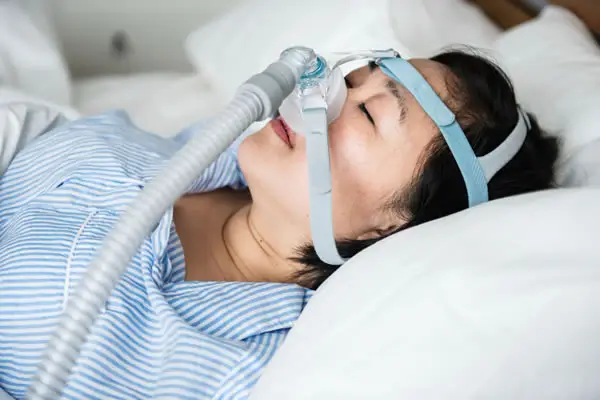
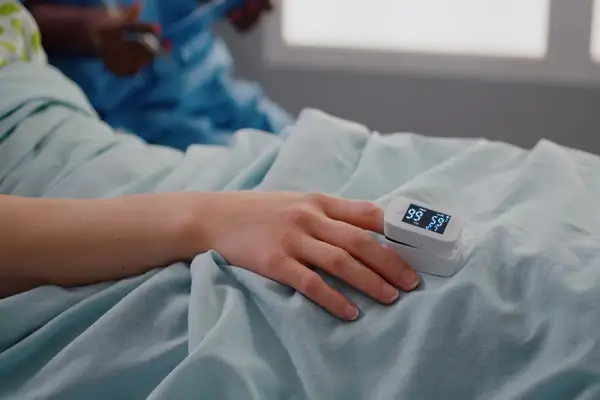
Common Tests Conducted by Sleep Specialists
There are several tests that sleep specialists may use to diagnose sleep disorders. The choice of test depends on the suspected disorder and individual circumstances. Here are some common tests for sleep disorders:
Polysomnography (PSG): This is a comprehensive sleep study conducted in a sleep center or lab. During PSG, you’ll be hooked up to equipment that monitors various physiological parameters such as brain waves, eye movements, muscle activity, heart rate, respiratory effort, airflow, and oxygen levels while you sleep. PSG is commonly used to diagnose sleep apnea, narcolepsy, REM sleep behavior disorder, and other sleep disorders.
Home sleep apnea test (HSAT): This is a simplified version of PSG that can be done at home. It typically involves wearing a portable monitor that records breathing patterns, oxygen levels, and other parameters while you sleep. HSAT is often used specifically for diagnosing obstructive sleep apnea in individuals with a high pretest probability and no other significant medical conditions.
Multiple sleep latency test (MSLT): This test measures how quickly you fall asleep during the day in a quiet environment. It’s commonly used to diagnose narcolepsy and assess daytime sleepiness. During the MSLT, you’ll take several short naps spaced throughout the day, and the time it takes to fall asleep (sleep latency) and any rapid eye movement (REM) sleep that occurs are recorded.
Maintenance of wakefulness test (MWT): This test measures your ability to stay awake and alert during the day. It’s often used to assess daytime sleepiness in individuals with professions that require sustained wakefulness, such as pilots or truck drivers.
Actigraphy: Actigraphy involves wearing a small device, typically on the wrist, that monitors movement and activity levels continuously over several days or weeks. It’s often used to assess sleep-wake patterns and circadian rhythms in individuals with conditions like insomnia, circadian rhythm disorders, or restless legs syndrome.
Sleep diary: Keeping a sleep diary involves recording information about your sleep habits, including bedtime, wake time, total sleep duration, sleep quality, and any factors that may affect your sleep (e.g., caffeine consumption, stress levels). A sleep diary can provide valuable insight into your sleep patterns and help identify potential sleep disorders.
Questionnaires and assessments: Healthcare professionals may use standardized questionnaires and assessments to evaluate symptoms of specific sleep disorders, such as the Epworth Sleepiness Scale for excessive daytime sleepiness or the STOP-BANG questionnaire for obstructive sleep apnea.
These tests are typically interpreted by sleep specialists who can provide an accurate diagnosis and recommend appropriate treatment options based on the results. If you suspect you have a sleep disorder, it’s essential to consult with a healthcare professional for proper evaluation and management.
What Conditions Do our Springfield Sleep Specialist Treat?
Sleep medicine experts can help you figure out what’s wrong with your sleep and how to treat it. They can diagnose and treat a variety of sleep issues, like:
- Bruxism (teeth grinding)
- Central sleep apnea
- Sleep apnea, including obstructive sleep apnea (OSA)
- Circadian sleep disorders and disturbances
- Sleep disorders
- Sleep disorders in special populations, including pediatric and cancer patients
- Sleep terrors (“night terrors”)
- Insomnia
- Hypersomnia
- Narcolepsy
- Nightmare disorder
- Nighttime leg cramps
- Parasomnias
- REM (rapid eye movement) sleep behavior disorder
- Restless legs syndrome
- Sleepwalking (somnambulism)
- Snoring and snoring disorders
Book an Appointment To Get Treated at Our Clinic
At NOVA Pulmonary Critical Care and Sleep Associates, we put our patients first. Our team of talented medical professionals is dedicated to providing the best care and treatment options in the area. If you or a loved one have concerns about issues caused by lack of sleep, give us a call today. Our friendly team is standing by and ready to learn how we can help.
What Our Patients Say About Us
Nova Pulmonary Critical Care and Sleep Associates
Address: 124 Park Street SE
Suite 203
Vienna, VA 22180
Hours of Operation: Monday – Friday 9 am to 5 pm
Directions to Our Clinic (Tysons Corner Center, 1961 Chain Bridge Rd, Tysons, VA 22102)
Meet the team at NOVA Pulmonary Critical Care and Sleep Associates
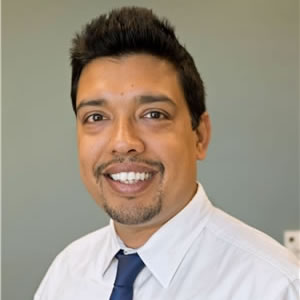
Dr. Aditya N Dubey, M.D, F.C.C.P. – Founder
Specialty:
Pulmonary, Critical Care and Sleep Medicine
Board Certified by American Board of Internal Medicine in the Subspecialities of Pulmonary Medicine, Critical Care Medicine and Sleep Medicine. Learn more about Dr. Dubey
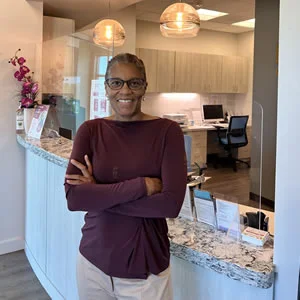
Dr. Petra Thomas, M.D.
Specialty:
Pulmonary Medicine
Board Certified by American Board of Internal Medicine in the Subspecialities of Pulmonary Medicine. Learn more about Dr. Thomas
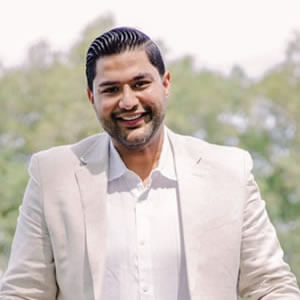
Dr. Arman Murabia, M.D.
Specialty:
Pulmonary, Critical Care and Sleep Medicine
Board Certified by American Board of Internal Medicine in the Subspecialities of Pulmonary Medicine, Critical Care Medicine and Sleep Medicine. Learn more about Dr. Murabia

Rebekah Lee, AGNP-C
Nurse Practitioner. Learn more about Rebekah Lee

Christine Amorosi, AGNP-C
Nurse Practitioner. Learn more about Christine Amorosie
Office Locations
Conveniently located near you in Loudoun and Fairfax VA
NOVA Pulmonary – Dulles
24430 Stone Springs Boulevard
Suite 200
Dulles, VA 20166
NOVA Pulmonary – Lansdowne
19415 Deerfield Avenue
Suite 301
Landsdowne, VA 20176
